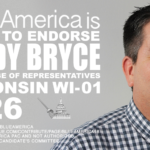President-elect Donald Trump is shaking up the Republican Party’s economic orthodoxy. He wielded the threat of government power to pressure United Technologies, the parent company of Carrier, to partially rescind plans for sending 800 jobs to Mexico (though 1300 jobs will go away, and the initial job-shift plan was to take three years to complete, so this new plan doesn’t necessarily alter the schedule.) He and his vice-president told the New York Times that “America’s been losing” with the “free market.” His aide Steve Bannon recently said “The conservatives are going to go crazy” with Trump’s plans for public works spending.
But posturing as working class heroes who abandon free-market ideology and flirt with protectionism to battle globalist forces is not a new look for Republicans.
Recall that in 2002, President George W. Bush, following the wisdom of his political guru Karl Rove, imposed a series of tariffs of up to 30 percent on imported steel to curry favor with Rust Belt voters before the 2004 election, particularly in Pennsylvania (which he lost narrowly in 2000) and West Virginia (which he won narrowly). Rove successfully pushed for the tariff over the objection of Bush’s economic and foreign policy advisers, but conveniently, the steel tariffs were to be phased out after the election in 2005.
Today, the conservative Wall Street Journal editorial board ripped Trump’s “shakedown” of Carrier and warned Republicans not to go along with his rejection of free-mark principles. Thirteen years ago, the same board called the steel tariffs Bush’s “worst economic decision” in an editorial headlined, “Steel Thyself, Karl Rove.”
The political gambit did not work out as planned. Steel users complained about higher prices. Unions complained about “loopholes” that undermined the objective. More jobs were lost than saved.
Then in late 2003, the World Trade Organization ruled the tariffs in violation of its rules, authorizing other countries to levy retaliatory tariffs. The Bush administration backed down and lifted the tariffs a few weeks later.
Bush’s retreat may have been a political loser. Or, as one columnist opined at the time, maybe Bush got the policy outcome he really wanted while getting credit from working-class voters for fighting the good fight against foreign powers.
But whether or not the tariffs were a good idea on policy or political grounds is beside the point. The point is that Bush was posturing for the working-class while pursuing a slew of policies — including tax cuts for the wealthy, weakened labor protections, Social Security privatization and corporate deregulation — that amounted to an assault on the working-class.
That posture is little different than what Trump is doing today. The wispy one-off deal with Carrier is great PR, but it won’t save 1300 jobs and may not end up saving a single job. And the deal is contingent on individual corporate handouts and broader corporate tax cuts. Jawboning is far from a strategy to comprehensively reverse economic stagnation in the Rust Belt and rural America, nor is Trump’s larger economic agenda of Bush-style mix of deregulation, corporate tax cuts and a few tax cut crumbs for the middle-class.
Trump may prove more combative than Bush when it comes to trade. Trump may relish a protracted fight with the WTO, even though getting hit with retaliatory tariffs could be economically and politically dangerous. And Trump insists he will renegotiate NAFTA and return to bilateral trade. But Bush also talked up “free and fair trade” (remember, Trump said he would bring “more free trade than we have right now.”) With the exception of the Central American Free Trade Agreement, Bush struck several bilateral trade agreements. These deals were still derided by labor groups as following the NAFTA model. Just like Trump rewarded Carrier instead of punishing it for moving jobs to Mexico, Trump’s bilateral trade deals may too reward CEOs and do little to help workers.
There’s nothing new about a Republican talking the populist talk and throwing a bone to the working-class to distract from a primary objective of protectionism for the executive class. Trump’s volume may be louder, and his policy choices may be cruder. But the basic con is still the same.
Crossposted from Campaign for America's Future.


















